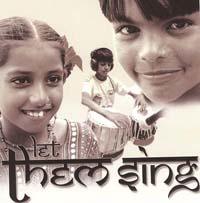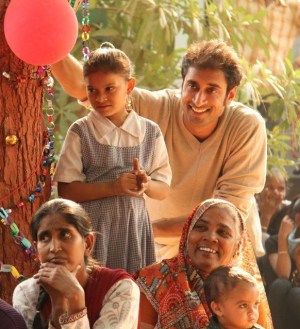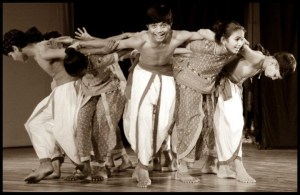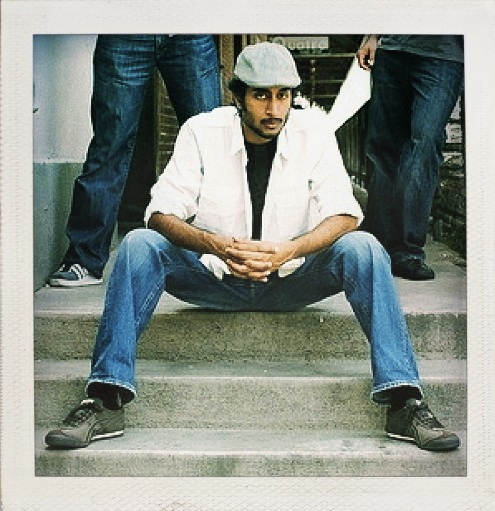A 2 AM Wakeup Call
Fame and fortune crowned this gifted artist early on. He rocketed to stardom barely into his twenties. But Nimo remembers the dark despair of a night that found him lying awake at 2 AM with a searing question: “Is this it?" In the eyes of the world he was living the dream but, "I was not at peace, not content and not in a daily space of joy and gratitude. I began wondering, where does this all go, when does it stop, where does this end?”
Nimesh Patel, better known as "Nimo" to friends and fans, was drawn to music straight from childhood. His casual classroom raps eventually evolved into full-blown songs and in college, along with a few friends he started the groundbreaking band
Karmacy. Together they pioneered a bi-lingual -- often tri-lingual -- form of rap and unleashed a phenomenon. Much to their own surprise, Karmacy’s hip-hop rap fused with thoughtful lyrics struck a deep chord with audiences and their popularity caught and spread like wildfire. Their hit single
Blood Brothers would become a cult classic, particularly amongst the young South Asian diaspora.“
I went from a nobody to lots of fortune and some fame; In my own eyes, I think I’m doing really well, Got lots of money so tell nobody to worry about my wealth; As for my health, well, it could be a little better; But take care of yourself, love your bro, I’ll storm through this weather.”
.jpg)
The song closes with the elder brother telling the younger one:
“No, I would never let you go through what I’ve gone through.”
Oddly enough, Blood Brothers foreshadowed Nimo’s own journey. Springboarding off Karmacy’s rapid rise, and leveraging his Wharton business degree, Nimo raised 7-digit funding to start a media production house. The road to glittering success entangled him in a world of oversized egos, superficial connections and banal content. All of which led to the existential crisis of Nimo's 2AM wakeup call: "Is this it?"
Fortunately, it wasn't. Not for Nimo, and not by a long shot.
The seeds for what happened next had already been planted -- nearly a decade earlier.
The Show That Changed Everything
"In 2002, I was in Manhattan, living it up when a friend from LA calls me up to say that I have to go visit this show in New Jersey!" Nimo recalls, adding with wry humor "Folks in Manhattan don't typically get jazzed about shows in New Jersey, but something pulled me there."
EKTA, the show he saw that night, would ultimately change the course of his life.

The performers were 14 interfaith children hailing from the slums that border the Gandhi Ashram in India. They had trained for a year and a half to bring to life a dazzling performance centered on the values of '
ekta' (unity) that Gandhi and Martin Luther King, Jr had championed. Their incredible journey charged through uncharted territory.
"None of us had done anything like this. None of our kids had never even sat in a plane before, let alone stepped out of their city. Once we arrived, we got an RV and two 15 passenger vans and went from one venue to another spreading the message of unity," said Viren Joshi, co-founder of
Manav Sadhna the non-profit that housed EKTA and the tour. The troupe would drive 8500 miles across 23 states performing a total of 48 shows.
Their grassroots approach and authenticity exuded a vibrant, irresistible pull. On the West Coast Jigar Shah heard about the show and decided to bring his 10-year-old brother to it. They arrived at the community center in Berkeley to find the janitor breaking down the locks because the building manager was late. It was unclear how several hundred people were going to get seated fast enough to start the show on time -- but it happened. The EKTA team operated with an unflappable faith that everything always happened for the right reasons, and in some subtle way the strength of their conviction made it so.

Tough situations, along this EKTA tour, were defused by loving hearts and wise humor. At this particular venue the organizers lightly joked about how they had to break into their own show :) At the end, as everyone rose to their feet for a stirring ovation, the birthday of one of the young performers was announced. The applause thundered even louder. Visibly stunned by the unexpected response, the birthday boy stood uncertain and overwhelmed in the spotlight. And then, in a beautifully un-choreographed move he folded his hands at his heart and bowed all the way down until he lay flat on the stage. In that one moment the crowd erupted. "The air was completely electric. All of us strangers suddenly felt like family," says Jigar Shah recalling his first, but far from last, introduction to EKTA and Manav Sadhna.
On the East Coast, watching the show in New Jersey Nimo had a similar experience. “As I sat there that spring night, it was a culmination of all my 24 years of experiences, endeavors, material successes, achievements … all the conditioning that had molded me until then. For a few hours, my mold was completely shattered. In front of me were 14 beaming children from some of the most downtrodden parts of India, some of the most under-resourced and materially underprivileged human beings in our world …. and yet, they were the ones shining, teaching, sharing, gifting, giving, beaming, smiling … they were redefining to me what it meant to be rich, to be privileged, to be blessed.”
And just like that, a seed was planted in his heart. In the years that followed it would quietly conduct a tremendous blossoming.
Finding Nimo

Through the course of that next decade, Nimo’s journey would take a series of unexpected twists and turns that returned him to his deepest self. He faced a severely debilitating RSI (Repetitive Stress Injury) condition that forced him to rethink his lifestyle. Disillusioned with the state of the industry, he gave up all forms of music (including listening to it) altogether for a year. On a quest for deeper truths, he sought the counsel of saintly teachers and began seriously meditating for the first time in his life. Not long after, Nimo moved to the Gandhi Ashram. He radically simplified his life, his diet and his mindset. In place of the next big idea, he focused on doing small acts of service. One of his projects involved unearthing the latent musical gifts of children in the slum community and working with them to create
Let Them Sing, a CD compilation and recording of their songs. Among the discovered talents was a young Muslim girl who is now sought out as a professional singer, often for many Hindu celebrations.
It was while meditating in the mountains of North India, however, that Nimo arrived at the touchstone for the next chapter of his life. Having already shut down the animation studio with his partners, he emailed his friends with a simple summary of his next aspiration: “Giving back and growing internally.” Just as accurately it might have read: giving back to grow internally.
Immediately after coming out of that 10-day silent meditation retreat, he found an internet cafe and claimed the calling that had been planted in him so many moons ago. “I just had to email Jayeshbhai and Virenbhai (the co-founders of the non-profit
Manav Sadhna) to see if they would support an encore of their EKTA journey. I wanted to learn how to be like those kids,” Nimo says. To him the focus of this idea wasn't a world tour as much as it was a full immersion into the lives of these kids, a chance to learn from them, and to serve and support them.

Around the time that the controversial film Slumdog Millionaire popularized a fictional story of a kid from the Bombay slums striking it rich, Nimo went off to author a very different narrative. In his eyes, these children from the slums possessed a richness that far outstripped material wealth. With the right platform and nurturing they would be able to share their gifts with the rest of the world, in a powerful and priceless blurring of our traditional notions of giver and recipient.
Over a nine month period, Nimo dived deep into the slum community and slowly identified and built up a team of 16 committed children and families. A few of them whose huts were destroyed by the city were and still are, technically homeless. He got to know all of them and their families intimately. Dharmaji’s father used to transport loads on the backs of donkeys to support his family. Asha is one of five children of a rickshaw-puller. Nitesh’s entire family lives in 6x8 room with three walls. Sanjay spends his days rag-picking to help his family survive, while his Dad is a shoe cobbler. Even their team leader and dance-trainer, Bharat, grew up as a shoe-shiner.
These are the real-life stories behind the dollar-a-day statistics in UN reports. Typically, the stories end there with a plea for donation. Not this time.
A New Definition of Family
Nimo began to build deep relationships with the children. He laughed and played with them, while also modeling discipline, and steadily becoming an older brother to each one. He taught them to sing, dance and act -- often in 120 degree heat, and gave them unconditional love . On a couple of memorable occasions, he invited all 16 kids over for a “
slumber party” at his apartment. He cooked for them, listened to them and taught them how to rap. When little Asha broke down over her
fear of ants, Nimo tenderly helped her overcome it.

Having sworn off desserts for a whole year (as a birthday gift to a friend!), Nimo passed on any treats he received to "his children" urging them to
share it with others too. Such humble, everyday acts deepened a culture of giving within their circle. “Even when our dance steps went wrong, and no matter how busy the teachers were, they would always patiently teach us,” remembers Bhavnik, one of the young children.
Robin Sukhadia, whose
Project Ahimsa was one of the earliest supporters of Ekatva, remembers, “Whenever I would visit, I'd always notice how the kids and Nimo loved each other. You could tell that their inner transformation was inspiring them to new heights.”
Sure enough, these kids -- each of whom had their own tale of surviving suffering -- channeled inspiration back to Nimo with their love, insight, and pay-it-forward spirit. Countless ripples would follow.
One day, a local well-wisher sent the children on a shopping spree with Rs. 300 ($6), young Vishal returned declaring that he didn’t really need any of the things that were on sale in the markets. True simplicity. Another time, Dharmaji found
a thousand rupee note on the streets -- comparable to the average American finding a stash of several thousand dollars -- and came back to Nimo wanting to know how to locate the rightful owner. Deep integrity. When Dipmala and Payal squabbled with each other, Nimo’s gentle conversations moved them to an
organic resolution. “Nimeshbhai [brother] do you know what I did today? While Dipmala was sitting down in class, I came behind her and put my hands over her eyes. Then I placed a chocolate in her hand and opened her eyes. She saw me and started smiling and then we both hugged each other. She took a bite of the chocolate and gave me the other half. We are friends again.” Total forgiveness. Collectively, they co-created many traditions, like praying for and
burying the dead animals or birds that are often found in their communities. Intuitive compassion. Their
parents, many of whom were skeptical at first, slowly witnessed not only the transformation in their children but also in their own lives, as they broadened their idea of family. “We enjoy everything because we do it all together, be it dance or work,” remarked Devram on his broader family.

With the guidance of the renowned dancer, Mallika Sarabhai and
Darpana Academy, Nimo and the kids spent two years conceiving and perfecting a 90 minute show celebrating humanity's fundamental interconnection. They dubbed it ‘
Ekatva’ -- a Sanskrit word that means Oneness. They performed several dozen shows across India. Akshay Sheth attended one of them at the town hall in Anand, Gujarat. It was a full house with over 700 people in the audience. “The whole performance was so profoundly moving that the standing ovation seemed to last forever. After perhaps six minutes, the organizers had to actually tell us to stop clapping! The show hits you in a deep place and makes you reframe your ideas of poverty altogether.”
It’s not that these are the most gifted kids on the block. Their talent is real but their draw far transcends individual skill and brings to life the power and beauty of our collective possibilities. “Inspire, not impress,” Nimo eloquently quips. It’s a mindset that elevates the playing field entirely -- to one of compassion, community and oneness.
Ekatva Meets the World
Scores of people urged the Ekatva group to bring their message to the United States and Europe. Over time, small amounts of money were donated on a ‘KickStarter’ project; a foundation stepped in with a matching grant; a volunteer in DC knew of a legal firm that offered up pro-bono support for securing travel visas. It all added up to exactly enough.
On April 29th, 2012 16 children from the slums and 9 coordinators left the shores of India on a journey across the world, called EKATVA. Before they boarded their plane, several hundreds of people gathered to pray together and send off these unlikely emissaries of oneness with their blessings and well-wishes. The majority of the troupe had never been on a plane before, “looking at the clouds coming at them.” Western-style toilets were a novelty. These children who typically dined sitting on the floor, were prepped beforehand with lessons in table-manners and the etiquette of the west. At every turn, the children would look at these new experiences with their quintessential innocence and struggle to frame it in their worldview. A process that wasn’t about this or that, but rather about broadening their minds to include this AND that -- and then joyously sharing that song of inner transformation with the world.
"Keep me away from the wisdom that does not cry, the philosophy that does not laugh and the greatness that does not bow before children," Kahlil Gibran once wrote. Now Ekatva brings us this twinkle-toed band of children rising out of unthinkable circumstances on the wings of love, with a sparkling wisdom that has people around the world, laughing, crying and ultimately bowing down before the unquenchable spirit of humanity.
There is a breathtaking lack of agenda in all of this. And a startling degree of trust. Somewhere along his inimitable journey, Nimo broke his music fast when a friend casually handed him an obscure album.
Track 7 on that Daniel Nahmod CD went like this:
Whatever grows will grow, Whatever dies will die, Whatever works will work, Whatever flies will fly, Whatever fails will fail, What’s meant to soar will soar -- We are planting seeds, nothing more.
Planting seeds, nothing more. And yet ... everything more.
On the children's first day in Chicago last week they walked by a yard where a stranger named Bob was mowing his front lawn. These kids from an unimagined part of the world had never seen such a vast green expanse of grass before, much less a lawn mower. Not only did they end up befriending "Uncle Bob", but they mowed his lawn for him. It was an act of kindness, but it was impossible to identify the giver and receiver. It felt like an inspired gesture of Oneness ---connecting each of us, leaving no one out.
Nothing more.

.jpg) The song closes with the elder brother telling the younger one: “No, I would never let you go through what I’ve gone through.”
The song closes with the elder brother telling the younger one: “No, I would never let you go through what I’ve gone through.” The performers were 14 interfaith children hailing from the slums that border the Gandhi Ashram in India. They had trained for a year and a half to bring to life a dazzling performance centered on the values of 'ekta' (unity) that Gandhi and Martin Luther King, Jr had championed. Their incredible journey charged through uncharted territory.
The performers were 14 interfaith children hailing from the slums that border the Gandhi Ashram in India. They had trained for a year and a half to bring to life a dazzling performance centered on the values of 'ekta' (unity) that Gandhi and Martin Luther King, Jr had championed. Their incredible journey charged through uncharted territory. Tough situations, along this EKTA tour, were defused by loving hearts and wise humor. At this particular venue the organizers lightly joked about how they had to break into their own show :) At the end, as everyone rose to their feet for a stirring ovation, the birthday of one of the young performers was announced. The applause thundered even louder. Visibly stunned by the unexpected response, the birthday boy stood uncertain and overwhelmed in the spotlight. And then, in a beautifully un-choreographed move he folded his hands at his heart and bowed all the way down until he lay flat on the stage. In that one moment the crowd erupted. "The air was completely electric. All of us strangers suddenly felt like family," says Jigar Shah recalling his first, but far from last, introduction to EKTA and Manav Sadhna.
Tough situations, along this EKTA tour, were defused by loving hearts and wise humor. At this particular venue the organizers lightly joked about how they had to break into their own show :) At the end, as everyone rose to their feet for a stirring ovation, the birthday of one of the young performers was announced. The applause thundered even louder. Visibly stunned by the unexpected response, the birthday boy stood uncertain and overwhelmed in the spotlight. And then, in a beautifully un-choreographed move he folded his hands at his heart and bowed all the way down until he lay flat on the stage. In that one moment the crowd erupted. "The air was completely electric. All of us strangers suddenly felt like family," says Jigar Shah recalling his first, but far from last, introduction to EKTA and Manav Sadhna.  Through the course of that next decade, Nimo’s journey would take a series of unexpected twists and turns that returned him to his deepest self. He faced a severely debilitating RSI (Repetitive Stress Injury) condition that forced him to rethink his lifestyle. Disillusioned with the state of the industry, he gave up all forms of music (including listening to it) altogether for a year. On a quest for deeper truths, he sought the counsel of saintly teachers and began seriously meditating for the first time in his life. Not long after, Nimo moved to the Gandhi Ashram. He radically simplified his life, his diet and his mindset. In place of the next big idea, he focused on doing small acts of service. One of his projects involved unearthing the latent musical gifts of children in the slum community and working with them to create Let Them Sing, a CD compilation and recording of their songs. Among the discovered talents was a young Muslim girl who is now sought out as a professional singer, often for many Hindu celebrations.
Through the course of that next decade, Nimo’s journey would take a series of unexpected twists and turns that returned him to his deepest self. He faced a severely debilitating RSI (Repetitive Stress Injury) condition that forced him to rethink his lifestyle. Disillusioned with the state of the industry, he gave up all forms of music (including listening to it) altogether for a year. On a quest for deeper truths, he sought the counsel of saintly teachers and began seriously meditating for the first time in his life. Not long after, Nimo moved to the Gandhi Ashram. He radically simplified his life, his diet and his mindset. In place of the next big idea, he focused on doing small acts of service. One of his projects involved unearthing the latent musical gifts of children in the slum community and working with them to create Let Them Sing, a CD compilation and recording of their songs. Among the discovered talents was a young Muslim girl who is now sought out as a professional singer, often for many Hindu celebrations. Around the time that the controversial film Slumdog Millionaire popularized a fictional story of a kid from the Bombay slums striking it rich, Nimo went off to author a very different narrative. In his eyes, these children from the slums possessed a richness that far outstripped material wealth. With the right platform and nurturing they would be able to share their gifts with the rest of the world, in a powerful and priceless blurring of our traditional notions of giver and recipient.
Around the time that the controversial film Slumdog Millionaire popularized a fictional story of a kid from the Bombay slums striking it rich, Nimo went off to author a very different narrative. In his eyes, these children from the slums possessed a richness that far outstripped material wealth. With the right platform and nurturing they would be able to share their gifts with the rest of the world, in a powerful and priceless blurring of our traditional notions of giver and recipient. Having sworn off desserts for a whole year (as a birthday gift to a friend!), Nimo passed on any treats he received to "his children" urging them to share it with others too. Such humble, everyday acts deepened a culture of giving within their circle. “Even when our dance steps went wrong, and no matter how busy the teachers were, they would always patiently teach us,” remembers Bhavnik, one of the young children.
Having sworn off desserts for a whole year (as a birthday gift to a friend!), Nimo passed on any treats he received to "his children" urging them to share it with others too. Such humble, everyday acts deepened a culture of giving within their circle. “Even when our dance steps went wrong, and no matter how busy the teachers were, they would always patiently teach us,” remembers Bhavnik, one of the young children. With the guidance of the renowned dancer, Mallika Sarabhai and Darpana Academy, Nimo and the kids spent two years conceiving and perfecting a 90 minute show celebrating humanity's fundamental interconnection. They dubbed it ‘Ekatva’ -- a Sanskrit word that means Oneness. They performed several dozen shows across India. Akshay Sheth attended one of them at the town hall in Anand, Gujarat. It was a full house with over 700 people in the audience. “The whole performance was so profoundly moving that the standing ovation seemed to last forever. After perhaps six minutes, the organizers had to actually tell us to stop clapping! The show hits you in a deep place and makes you reframe your ideas of poverty altogether.”
With the guidance of the renowned dancer, Mallika Sarabhai and Darpana Academy, Nimo and the kids spent two years conceiving and perfecting a 90 minute show celebrating humanity's fundamental interconnection. They dubbed it ‘Ekatva’ -- a Sanskrit word that means Oneness. They performed several dozen shows across India. Akshay Sheth attended one of them at the town hall in Anand, Gujarat. It was a full house with over 700 people in the audience. “The whole performance was so profoundly moving that the standing ovation seemed to last forever. After perhaps six minutes, the organizers had to actually tell us to stop clapping! The show hits you in a deep place and makes you reframe your ideas of poverty altogether.”












On May 6, 2012 Noor a.f wrote:
Yes, am the first one and if groups are needed I can call my team who are 20made of males and females.
Thank you too.
Post Your Reply